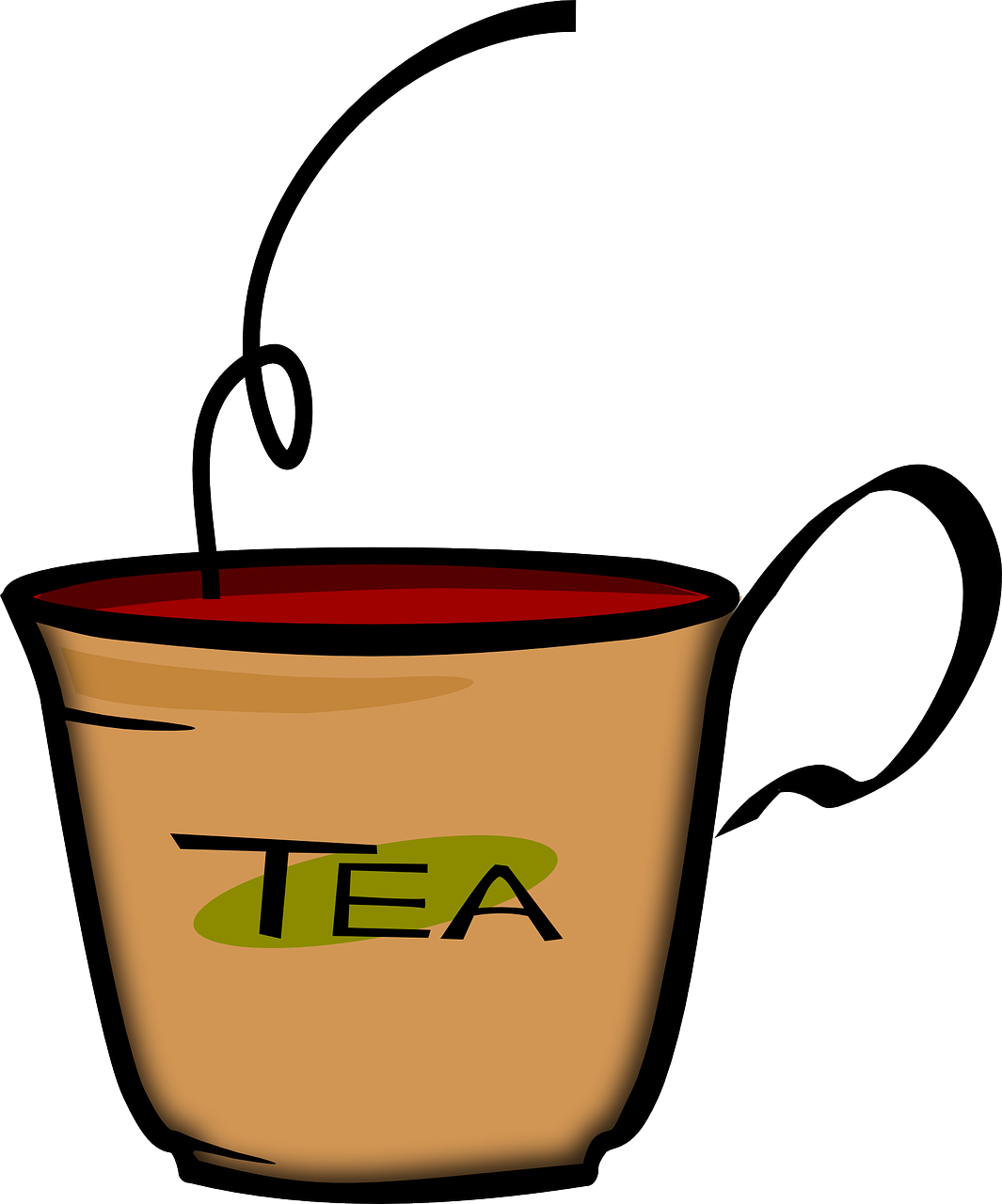s When you’re feeling under the weather with a cold, a warm cup of tea can be just the soothing remedy you need. You will discover what type of tea is best for colds here today!
Not only is tea comforting to sip on, but certain types can also have benefits that might help alleviate cold or flu symptoms. Many people turn to tea as a natural way to soothe sore throats, ease congestion, and reduce the overall discomfort that comes with a cold.

Tea is not just a warm beverage; some varieties are believed to have properties that can support the immune system and offer relief during a cold. Chamomile, for instance, is known for its calming effects, which can be particularly beneficial for restful sleep, while ingredients like ginger in teas are praised for their anti-inflammatory properties. It’s not just about the type of tea, though—the act of drinking tea itself promotes hydration and warmth, providing a comforting ritual when you’re not feeling your best.
Key Takeaways
- A warm cup of tea can offer soothing relief for cold symptoms.
- Certain teas contain ingredients that may assist with immune support during a cold.
- Hydration and the comfort of a tea-drinking ritual contribute to its appeal when managing cold symptoms.
- Hot beverages have been shown to help soothe sore throats and have antibacterial properties that can aid in recovering from colds.
- Peppermint has the benefits of reducing pain symptoms, opening airways, reducing inflammation, and soothing a scratchy throat.
- Certain types of tea have been found to have a greater impact on immune health and pathogen elimination than others.
Understanding Colds
When you catch a cold, it’s typically due to a virus, and it often leaves you dealing with a slew of uncomfortable symptoms. Your diet and how well you keep hydrated can play a crucial role in how you feel and potentially, how quickly you recover.
Common Cold Symptoms
You’ll know you’re dealing with a common cold if you have symptoms like sneezing, a runny or stuffy nose, a cough, or a sore throat.
Sometimes a cold can be a little more serious, giving you a headache ,other pain symptoms or even a fever. Here’s a quick checklist of symptoms you might experience:
- Sneezing
- Runny nose
- Cough
- Sore throat
- Congestion
- Headache
- Fever
Causes and Transmission of Colds
Colds are caused by viruses, and you can catch one when you come into contact with airborne droplets from an infected person’s sneeze or cough. Touching surfaces contaminated with the virus and then touching your face is another common way you might get sick. Yep, that’s right, that doorknob could be a culprit if someone sick touched it before you.
Impact of Diet and Hydration on Cold
Staying hydrated is essential when you’re fighting a cold. Drinking plenty of water can help ease congestion and keep your throat moist. You’ve likely heard chicken soup can help, and while it’s no miracle cure, the warm liquid can be soothing. Integrating plenty of fluids like warm water, herbal teas, or broths into your diet is a sure-fire way to stay hydrated and may provide some relief to your symptoms.
The Benefits of Tea for Colds
When you’re down with a cold, a hot cup of tea can do more than just soothe your irritated throat. It’s packed with components that can help your body fight off infection and alleviate symptoms.
Tea’s Natural Healing Properties
Antioxidants are your allies in fighting colds, and many teas are brimming with them. These antioxidants support your immune system, helping it to fend off viral invaders. Teas like green tea and elderberry tea are great options, as they provide not just antioxidants but also anti-inflammatory benefits, reducing sore throat and discomfort.
In addition to antioxidants, teas contain phytochemicals. These naturally occurring compounds can have antimicrobial and antiviral properties, which can be beneficial when you’re fighting a cold. For example, chamomile tea is often recommended for its calming and antimicrobial effects.
Therapeutic Effects of Hot Tea
The comfort of hot tea comes with more than just its warmth. The steam from your cup can help with respiratory system relief. As you hold your hot cup of tea and breathe in, the steam inhalation can aid in decongesting clogged sinuses. This could provide a sense of relief and facilitate easier breathing.
Moreover, some teas have natural menthol effects that can provide a cooling sensation to your throat, further easing your cough or sore throat. Peppermint tea is a notable example, which can help soothe your respiratory passages.
Best Types of Tea for Cold Symptoms
When you’re battling cold symptoms like coughing, a sore throat, and congestion, reaching for a soothing cup of tea can be a great comfort. Here’s a rundown of the best teas that can help alleviate your symptoms and boost your immune system.
Peppermint Tea
Peppermint tea is not only refreshing, it contains menthol, which acts as a natural decongestant, helping to break up mucus and relieve congestion. The cooling effect of menthol can also soothe a painful sore throat.
Ginger Tea
Known for its ability to calm nausea, ginger tea also has anti-inflammatory properties that can help reduce throat irritation. Ginger contains compounds like shogaols that can act similarly to throat lozenges, easing cough and soreness making it an excellent choice.
Chamomile Tea
Chamomile tea is famed for promoting sleep and relaxation, which are vital when you’re sick. It’s an anti-inflammatory that can help reduce sore throat pain, and the flavonoid apigenin in chamomile is linked to improved sleep quality.
Green Tea
Sipping on green tea offers both antioxidant, anti-viral properties and anti-inflammatory benefits. The catechins in green tea may enhance your immune system, potentially leading to quicker recovery from cold symptoms.
Echinacea Tea
Echinacea tea is believed to possess antiviral properties, which might be beneficial for the upper respiratory tract infections. Drinking echinacea tea could help shorten the duration of your cold.
Elderberry Tea
This tea has both antiviral and immune-boosting effects. Elderberry tea is a good choice if you’re dealing with flu symptoms or a respiratory infection, as it’s thought to fight the viruses that cause these ailments.
Lemon Tea
Finally, lemon based tea such as lemon balm tea helps soothe a sore throat and can be fortified with vitamin C when you add a slice of real lemon. Lemon also pairs well with honey, which can be mixed in for added throat soothing and sweetness.
Additional Remedies and Considerations

When you’ve got a cold, tea can be soothing, but it’s not the only remedy. Pairing your brew with the right herbal remedy add-ins or exploring other options might help you feel better faster.
Herbal Additions to Tea
You can supercharge your tea with certain herbs and spices to enhance its cold-fighting potential. Adding a slice of lemon can provide a tangy boost of vitamin C.
Stir in some raw honey not only for sweetness but also for its soothing properties. Not into lemon? Throw in dried fruits like berries for a hint of natural sweetness and a vitamin kick.
For an herbal boost, adding echinacea and ginseng to hot water are popular choices that some believe may support a healthy metabolism and immune system. Both have been used in Chinese medicine for thousands of years.
Consider adding a cinnamon stick to enhance both the flavor and potential anti-inflammatory benefits of black tea.
Hot chilies help combat fatigue, and the capsaicin from the chili will also help reduce nasal blockage and sinus congestion.
Non-Tea Alternatives and Supplements
If tea’s not your thing, or you’re looking for additional support, consider caffeine-free liquids like hot water with lemon and honey. Supplements can also step in—some swear by vitamins like C and zinc to shorten cold duration. However, do keep in mind not all supplements work for everyone, so it’s worth checking with a healthcare professional.
Lifestyle and Relief Measures
Beyond what you eat and drink, don’t underestimate the power of a good sleep and relaxation. Ensuring you’re well-rested can work wonders on your recovery time. Also, try to reduce stress levels, as stress can weaken your immune system’s response. Staying hydrated is crucial too, so keep sipping on fluids even if you’re not in the mood for tea.
Conclusion

When flu season hits and you’re grappling with cold symptoms, sipping on herbal tea can be a soothing escape. You’ve got a range of teas to choose from, each with their own health benefits.
- Chamomile Tea: Known for its calming effects, it might just be what you need for a good night’s sleep.
- Ginger Tea: A spicy option to clear your sinuses and warm you up from the inside.
- Elderberry Tea: While not as common, it’s linked to boosting your immune system.
Don’t forget about the comfort of lemon tea, often combined with honey, not only for its vitamin C but also for its ability to reduce throat irritation. Echinacea tea is another popular pick, believed to potentially shorten the duration of colds.
Home remedies like these are not a cure-all, but they can complement your recovery efforts by keeping you hydrated and offering a bit of respite from the coughs and snuffles. If you’re pregnant, nursing, or have any health concerns, a quick chat with your healthcare provider before trying new teas is a smart move.
For those experiencing symptoms like a sore throat, stuffy nose, cough, or others, some people suggest that a warm cup of tea can provide relief.
Remember, your favorite tea might not be a miracle solution, but it’s a simple, natural, and comforting part of your cold-fighting arsenal. So next time you’re feeling under the weather, consider reaching for a cup.
Frequently Asked Questions

When you’re down with a cold, picking the right tea can make all the difference. It’s not just comfort in a cup; certain teas can actually help tackle different cold symptoms.
What’s the top tea to help with a sore throat and cold symptoms?
If your throat’s feeling like sandpaper, chamomile tea is a soothing choice. It’s known for its anti-inflammatory properties, which may alleviate sore throat pain and cold symptoms.
Can sipping a certain kind of tea ease congestion associated with a cold?
Absolutely, peppermint tea can be your best friend for congestion. The menthol present in it acts as a natural decongestant, helping to break down mucus.
Are there any teas that can help alleviate fever and chills during a cold?
Yes, ginger tea can be quite beneficial. Its natural warming effects and anti-inflammatory properties may reduce fever and soothe chills.
Which teas are recommended for battling a runny nose and sneezing?
For that annoying runny nose and sneezing, green tea can be effective due to its antioxidant properties that support the immune system.
Is there a specific tea that’s effective for respiratory infections?
Echinacea tea is a popular choice for respiratory issues, as it’s thought to fortify your immune system, potentially helping to combat the infection.
What homemade tea remedies are best for fighting off a cold and flu?
Creating a homemade tea with honey, lemon, and cinnamon can be quite potent against cold and flu. Honey soothes your throat, lemon provides vitamin C, and cinnamon adds antimicrobial benefits.

